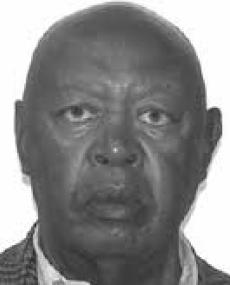
Isaac Lesiba Maphotho 'Bra Ike'
Isaac Lesiba Maphotho (Bra Ike) was born in Ga-Makgato (Blouberg Municipality) on 26 February 1931. He completed his Standard 6 (Grade Eight) at Uitkyk Secondary School in 1952. Maphotho left his home towards the end of 1952 to search for employment in Pretoria. He found a job at the City Council, working in the Department of Native Affairs, 'Bra Ike', as Maphotho is affectionately known, was soon confronted with the discriminatory laws and exploitative conditions which people experienced under apartheid labour laws.
He joined the African National Congress (ANC) and soon became an active member. His area of political operation was Atteridgeville, Benoni where he soon became recognised as a strong and principled political leader. He was one of the first recruits of Umkhonto We Sizwe (MK), which was established in December 1961.
Through the ANC, Maphotho became involved in underground activities before he left the country for Dar es Salaam on 28 February 1961.In 1962, the ANC sent him to the Beirut International School from where he returned to Dar es Salaam in 1963. In the same year, he was sent for military training in the former Soviet Union as part of the Luthuli Detachment.
Some of his comrades included former Minister of Intelligence, Ronnie Kasrils, Pat Mmolawa and the late Joe Modise (former Minister of Defence). Maphotho was the commander of the Detachment and after completing his training in 1965, he returned to the Kongwa Camp in Dodoma region, Tanzania, where he served as a Commander until 1967.
He rose to become Chief Logistics Officer for the Luthuli Detachment during its military operations. On 6 April 1968, the Rhodesian security forces captured him. He was duly tried and sentenced to death on 9 August 1968 before being imprisoned at the Khami Maximum Prison.
During his incarceration, he continued to serve the ANC as a group leader for 13 years until his release by the new Zimbabwe Government under Robert Mugabe on 14 May 1980. In the 1980s, he travelled extensively in his capacity as the regional leader of the ANC to mobilise the international community against the Apartheid system. Some of the countries he visited included Libya, Cuba, Scotland, England, Italy, Spain, the Union of Soviet Socialist Republics, Germany, Chile, Sudan, Ethiopia and Switzerland.
After the unbanning of the ANC, Maphotho returned to South Africa in 1992, 31 years after he left the country. He continued to serve the ANC in various capacities and initiated the Limpopo Premier's Bursary Fund tasked with funding tertiary education for needy students. In a fitting honour to this struggle icon, the ANC's Isaac Maphotho Branch in Polokwane was named after him.
Isaac Lesiba Maphotho is still served the ANC as a member of the provincial legislature in Limpopo up to May 2019. In 2006, the State President, Thabo Mbeki, conferred the Order of Luthuli on Maphotho for making a meaningful contribution in the struggle for democracy. He was awarded the Order of Gold by the Military Veterans.